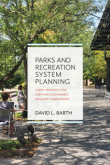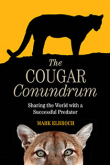In this inspired collection, some of America's most provocative thinkers and writers reflect on nature and enviornmetnal science--reaching compelling conclusions about humanity's relationship to the earth. Balanced by science and fact, Learning to Listen to the Land explains the significance of our modern environmental crisis. The authors underscore the necessity forworking within, rather than counter to, our larger ecosystem.
Learning to Listen to the Land represents the sounding of an alarm. It's authors call on us to recognize the consequences of our actions, and inactions, and to develop a sense of connection with the earth.
Foreword
Introduction
PART I. Nature And Biodiversity
-The Earth As A Living Organism
-The Current State Of Biological Diversity
-Do We Really Want Diversity?
-The Future Is Today
-The End Of The Lines
-How Big Is Big Enough?
-From The Arrogance Of Humanism
-The Gift Of Wilderness
PART II. The Impossibility Of Endless Growth
-Apollo's Eye View: Technology And The Earth
-From Nature And Madness
-The Futility Of Global Thinking
-From Global Bioethics: Building On The Leopold Legacy
-Why We Have Failed
-From One Life At A Time, Please
-Every River I Touch Turns To Heartbreak
-Overpopulated America
-Waste A Lot, Want A Lot
-Population And Development Misunderstood
PART III. Toward Holism And Sustainability
-Indigenous Peoples Are The ''miners' Canary'' Of The Human Family
-An Iroquois Perspective
-Restoration And Reunion With Nature
-Searching For Common Ground: Ecofeminism And Bioregionalism
-From Confessions Of An Eco-warrior
-Boundless Bull
-Grass-roots Groups Are Our Best Hope For Global Prosperity And Ecology
-The Consummate Recycler
-From The Dream Of The Earth
About The Contributors
Permissions
Index
















